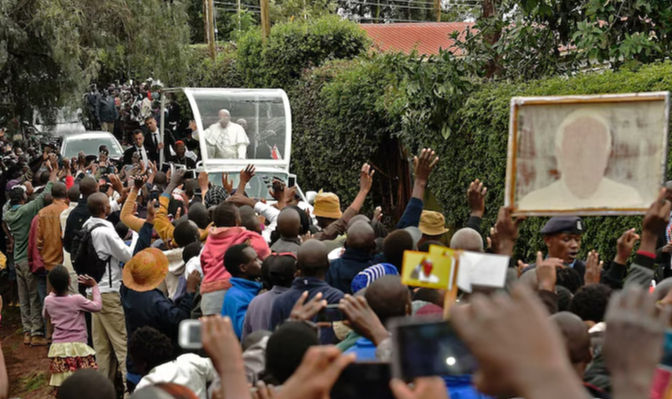Pope Francis: The Man in the Arena
- Apr 21, 2025
- 3 min read

This morning, Pope Francis, born Jorge Mario Bergoglio, passed away after a long battle with respiratory complications that kept him in and out of the hospital. He served as the Archbishop of Buenos Aires and, later, as the 266th pope of the Roman Catholic Church from 2013 until his death. He was the first pope from the Western Hemisphere and the first from the Jesuit order, ushering in a new era of leadership marked by humility and a focus on reform.
Throughout his life, Francis emphasized mercy, social justice, and interfaith dialogue. He was loved, honored, and at times criticized by both insiders and outsiders of the Catholic Church.

Pope Francis's tenure was not without controversy. Known for speaking candidly with journalists, his remarks on social equality and his appeal to all Christians—and even non-Christians—often carried a political tone that garnered praise and criticism from world leaders.
Despite this, Father Bergoglio never aspired to become pope, or "Vicar (representative) of Christ." He was a deeply pious man, known for his humility and commitment to a simple life devoted to serving the less fortunate. These qualities earned him admiration from his fellow cardinals and from his predecessor, Pope Benedict, who made the decision to retire during his papacy—something that hadn't occurred in 600 years. In the wake of Benedict's resignation, the Church elected Jorge Mario Bergoglio as pope, and he chose the name Pope Francis in honor of St. Francis of Assisi, a decision that proved to be a fitting reflection of his leadership style.

Pope Francis boldly confronted the modern challenges facing the Church, not shying away from them. This was why the Church elected him. Rome wanted an outsider, a reformer, someone capable of addressing the pressing issues within the Church. These challenges included increasing western secularization and the lingering effects of past scandals that had plagued the Church worldwide. How did he address these problems? Steadfast when required, but more often with love, charity, and open arms. He embraced the marginalized, the underdogs, even those whose views did not align with the Catechism. He refrained from publicly condemning them, while occasionally speaking out against world powers.
Like many Catholics, I didn’t agree with everything Pope Francis said or did. He certainly demonstrated that the pope is not infallible, which helps clarify things for my Protestant friends. However, he was a man of love, one who dedicated his life to helping the poor and lived out the Beatitudes every day. His good works far outweigh any controversies he may have sparked. He didn’t directly contradict any Church doctrine but rather challenged the status quo, engaging in conversations that others were hesitant to approach.
He was asked to do a job, and he did it to the best of his ability. He stepped into an arena that many would have been too afraid to even approach. For this, we owe him our thanks. Now, as he finds his rest in heaven after 88 years of service to our Lord on earth, the world owes him our respect. Rest in peace, Holy Father.





Comments